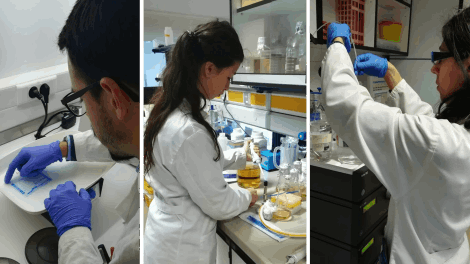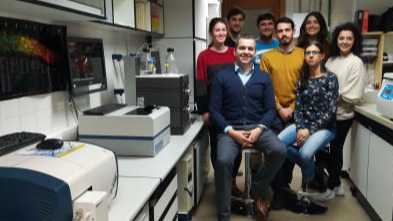
Our research at ULisboa aims to decipher molecular mechanisms underlying protein folding diseases.
We study protein aggregation mechanisms and its regulation by molecular chaperones in neurodegenerative diseases including Alzheimer's Disease
We also investigate loss of function due to protein misfolding in several mitochondrial metabolic and neurological diseases.

We combine molecular, cellular and biochemical experimental approaches to investigate protein structure and self-assembly in vitro and in cells.
Implemented techniques comprise:
● Purification of disease causing proteins (Aβ, Tau, Syn)
● Mechanistic analysis of amyloid aggregation kinetics;
● Structural biophysics analysis (CD, ATR-FTIR fluorescence)
● Enzymatic assays (ETC, β-oxidation)
● cell toxicity and RT-QuIC assays.

The laboratory is a vibrant workplace composed by passionate and curious team members from different backgrounds, nationalities and training levels.
Team effort is driven by high-quality, thorough research in protein biochemistry and biophysics.
We regularly welcome visiting professors in sabbatical periods and international students in short term research internships.

Through collaboration we summon knowledge, methodological resources and training opportunities for team members that allow tackling our research questions in a multidisciplinary perspective, from molecules, to cells to organisms.
Our collaborative network includes +10 research institutions worldwide and includes physicists, computational biologists, mathematicians, cell biologists and clinicians.